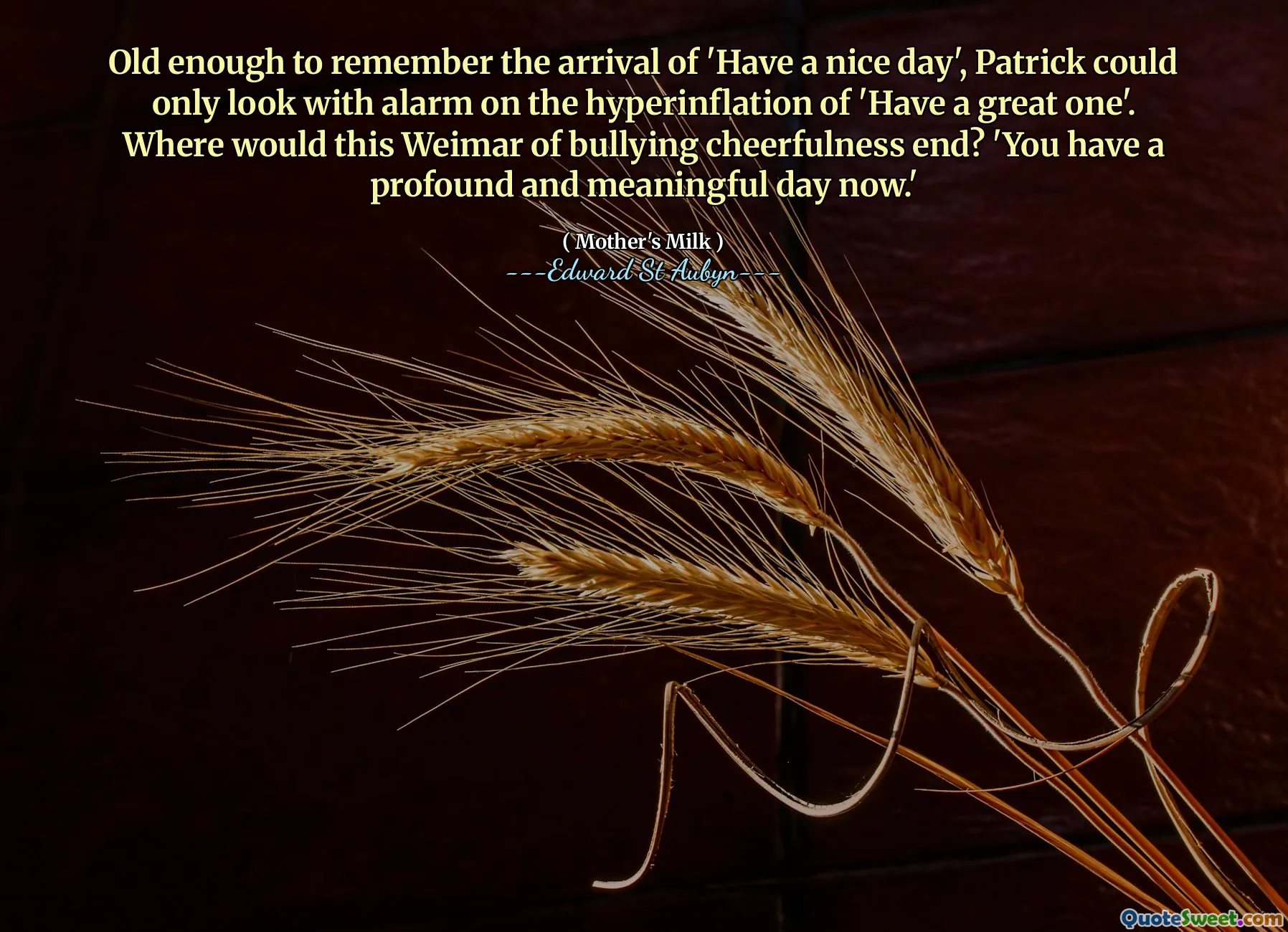
Old enough to remember the arrival of 'Have a nice day', Patrick could only look with alarm on the hyperinflation of 'Have a great one'. Where would this Weimar of bullying cheerfulness end? 'You have a profound and meaningful day now.'
The quote reflects a subtle critique of modern society's obsession with forced positivity and superficial politeness. The transition from the simple, genuine greeting "Have a nice day" to the exaggerated, almost frantic "Have a great one" illustrates how our social interactions have been increasingly packaged with manufactured cheerfulness. This shift signifies a societal push toward relentless positivity, often at the expense of authenticity and genuine emotion. The phrase "hyperinflation of 'Have a great one'" suggests that this eagerness to convey happiness has become excessive, perhaps even absurd, mimicking an economic bubble where value is inflated beyond sustainability. The comparison to the Weimar Republic hints at a period of instability and chaos, implying that privileges of superficial positivity could lead to an underlying societal upheaval. The rhetorical question about where this pursuit of "bullying cheerfulness" might end urges reflection on whether such enforced optimism is sustainable or healthy. It points toward the systemic production of a facade that masks deeper issues, much like the ballooning economic and political crises of Weimar Germany, which eventually led to catastrophic consequences. The closing sentence, "You have a profound and meaningful day now," embodies the often impersonal, obligatory tone that has infiltrated everyday communication, stripping away the sincerity once associated with common courtesies. This quote encourages us to consider the authenticity of social rituals and the potential consequences of valuing superficial positivity over genuine human connection.






